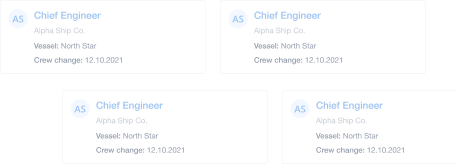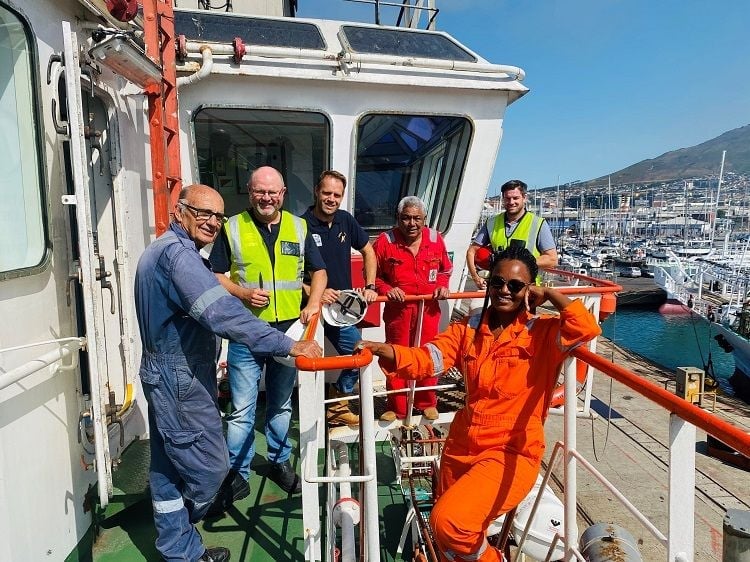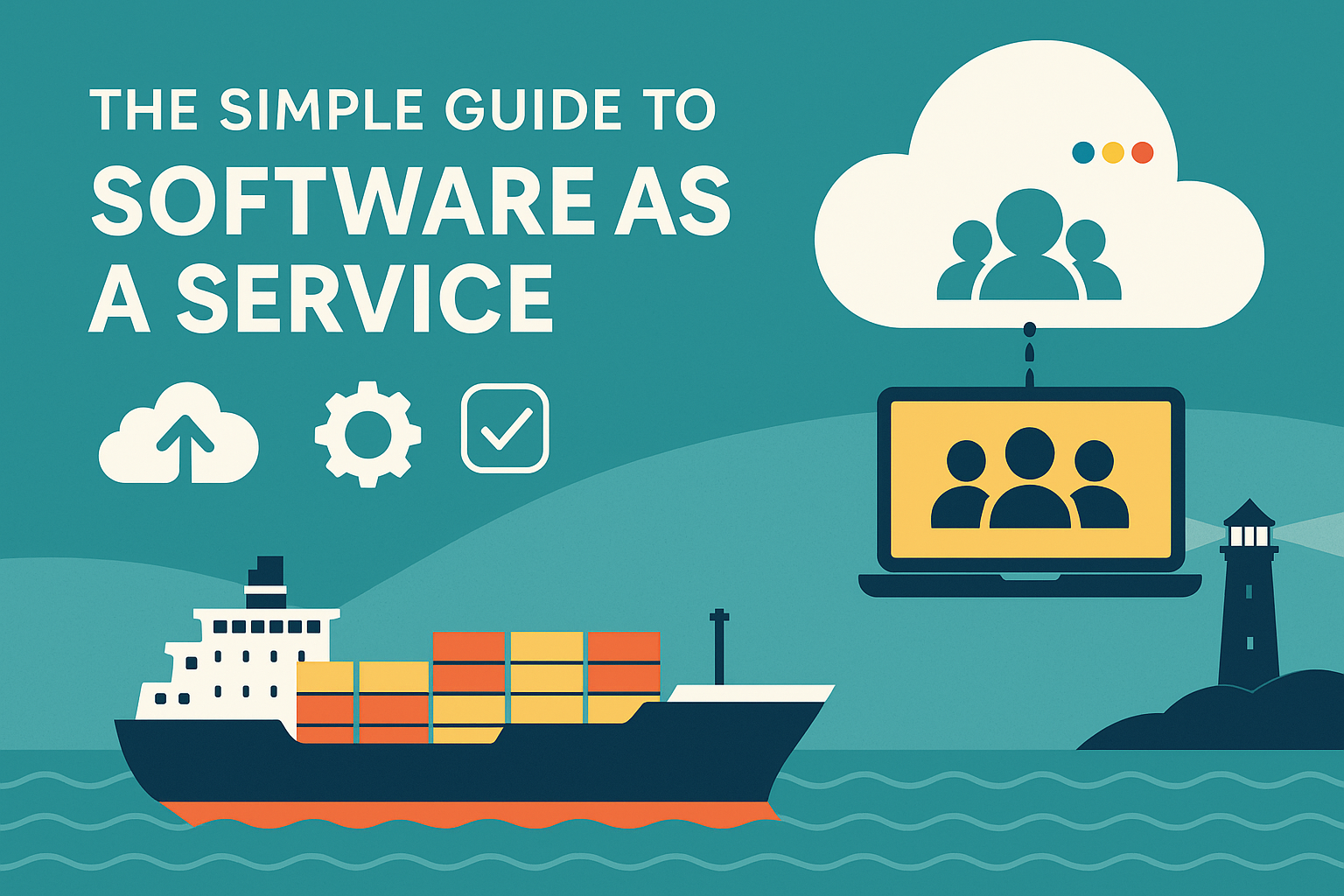4 Tips To Help You Interview Millennials in Maritime Recruitment
Jan 13, 2020 · 11 mins read ·
Maritime Recruitment
In maritime recruitment if you’re looking for great candidates to fill your vacancies, it’s highly likely you’re meeting seamen who range from cadets just out of maritime academy to experienced masters and chief officers. And somewhere in the middle of those two age groups lie the millennials.
If the very mention of that particular demographic makes you automatically roll your eyes, or even fills you with a sense of dread, it’s worth remembering that not everything you read in the media is true!
How to interview millennials in maritime recruitment
Yes, a lot of millennials do like taking selfies, use emojis to communicate, and spend their lives on social media hoping for likes - or looking for jobs!
And it’s true that many of them are more demanding than the generations that have gone before them when it comes to perks, benefits and rights in the workplace.
But let’s not forget that this is a generation that has grown up with, and embraced, technology. And this is something that can work to your advantage as an employer.
Whether it’s justified or not, the notoriety surrounding millennials and their reputation for being spoilt has meant that a lot of employers, HR people, and recruitment agencies are a little confused when it comes to knowing how to effectively engage with, hire, and retain this age group.

Read more: Why Your Shipping Company Needs a Social Media Presence
You might be wondering why you should be pandering to millennials but if you’re looking for top talent for your shore based jobs, or you want to attract a new generation of seafarers who are comfortable using technology (something that is increasingly important in the maritime industry) you need to know how to talk to them.
4 tips for interviewing millennials
1. Use language they understand
We don’t mean this quite as literally as it sounds. Chances are any interview you conduct will be in English, particularly if you and the candidate have different mother tongues.
By using language a millennial can understand, we mean making sure they understand what it is you’re looking for.
This generation isn't only concerned with what the job entails. Many millennials will also show an interest in your company, its ethics, and how they fit into a team or crew.
This might not be quite the case for the candidates you interview for your seafarer jobs, but it’s worth bearing in mind that it probably will be for shore based staff.
You’ll need to address these points as well as running through the basics of their job description. Don’t forget, the millennials are, on the whole, a more socially conscious group of individuals than Generation X and the baby boomers.

Read more: 5 Tips for Better Maritime Recruitment Interviews
2. Realize that money isn’t everything
Whilst millennials are definitely concerned about being paid a fair page for the work they are employed to do (something else to be aware of…) they are also just as interested in making sure there are opportunities to grow their career.
Sure, the majority of your seafarer jobs will be short term contracts, but it’s still worth being aware of this. If anything it can benefit you when it comes to crew retention as millennials will be interested in knowing how they can progress their career at sea.
You can use this to your advantage by encouraging the seamen that interview well to line up their future contracts with you.
It hints at career progression for them and makes crew planning easier for you!
3. Adjust your line of questioning
The thing with the millennial candidates who are applying for your seafarer jobs is that they may not have a lot of sea time or experience in their rank. Especially if they were born at the later end of the millennial era, which is generally agreed to be 1981 to 1996.
That means that you’ll have to alter your usual questions that are about experience to suit your candidates who might have only one contract on their resume so far, or who may even be fresh out of maritime academy or university.
To find out more about your potential recruit, ask them questions about their sports, hobbies, volunteer work, or other extra curricular activities instead.

You might have to get creative but try questions that ask about how they handle losing to a rival team in their baseball league, or how they overcame adversity to attend college and begin their career at sea.
This will also give you insight into your candidate as a person and how they handle issues - something that is always important to know before signing off on that seafaring contract.
4. Figure out if they’re suited to seafarer jobs
It takes a very specific type of personality to be able to cope with months away at sea. Character traits such as the ability to think under pressure, mental as well as physical strength, punctuality and many more are crucial.
Your task is to weed out the candidates who you just don’t see as being a good fit for your vessel.
Your candidate may be qualified but you still need to be careful who you hire. Especially if they don’t have a lot of experience. That’s not to say that you should overlook younger seafarers - you absolutely shouldn’t as many of today’s Cadets will be tomorrow’s Masters.
But when it’s your reputation on the line it doesn’t hurt to practice a little extra care.
One of the major things employers complain about when it comes to hiring millennials is their inability to take constructive criticism. And just a quick Google of the term will show you that it seems that ‘special snowflake syndrome’ has affected one too many of this age demographic.

Read more: How to Use Social Media to Up Your Maritime Recruitment Game
However, that’s obviously a sweeping generalization and a stereotype. And it would be foolish to claim that anyone between the ages of 23 to 38 will throw a hissy fit at the slightest bit of helpful workplace advice.
But...having said that, it’s in your own interests to make sure you are employing someone who is responsive to feedback and who won’t throw their toys out of the pram just because their superior corrected the way they approached a task.
To find out who will and who won’t be a good match for one of your seafarer jobs, ask your candidates to tell you about an occasion when they thought they weren’t going to be able to deliver on an assignment, promise, task or undertaking.
To be able to answer this question, your potential hire will have to talk about an issue or challenge and tell you how they overcame it.
This will give you valuable insight into the type of seaman they are or would be.
Did they crack under the pressure? Shift the blame for any issues onto someone else? Or did they face the problem head on and learn from it?

Will millennials change the way we interview seafarers?
As we’ve already seen, millennials are acting as a catalyst for change within recruitment. They expect hiring processes to be streamlined and technologically advanced, and they expect an overall great experience and better engagement with your company.
While it’s hard to deny that this generation (and Generation Z who follow it) do seem to want more, more, more, the knock on effect is that so do other candidates as well.
Read: How to Read Candidate Body Language in Maritime Recruitment
The millennials and baby boomers may be worlds apart in attitudes and values, but new ways of thinking do inevitably filter through. And you can be sure that a fair proportion of Generation X (born between 1961 - 1981) won’t be sitting idly by and resigning themselves to only accepting the millennials’ leftover, unwanted jobs!
After all, the concepts of a job having opportunities for growth, fair pay, perks, benefits such as insurance, and a great company culture have been unleashed on the world.
And why would older candidates ignore these concepts just because they weren’t around when they first entered the job market?
Leverage the way you interview to benefit you
If you’re interviewing millennials, especially those that are new to job hunting, you really want to be doing all you can to make it a great experience for them. This will increase candidate engagement and therefore increase their loyalty to you.
Read more: The Ultimate Guide to Growing Your Candidate Database
By providing them with one of their first positive hiring experiences, you’ll not only likely retain good candidates to line up for future contracts but they’ll hopefully always maintain that sense of loyalty as they progress throughout their maritime career.
How Martide can help you with maritime recruitment
At Martide we’re with you every step of the way when it comes to filling your seafarer jobs. We’ll give you access to our large international database of manning agents, and to our global talent pool of licensed seafarers for a start!
You can also use our platform to filter candidates based on your requirements and create a recruitment pipeline that takes you all the way from shortlist to contract signing with a minimum of fuss.
If you’d like to find out more about how Martide can help you find seafarers of any age and demographic, get in touch today and schedule your no-obligation demo of our software now!

Eve Church
Eve is Martide's content writer, publishing regular posts on everything from our maritime recruitment and crew planning software to life at sea. Eve has been writing professionally for more than two decades, crafting everything from SEO-focused blog posts and website landing pages to magazine articles and corporate whitepapers.
UK


